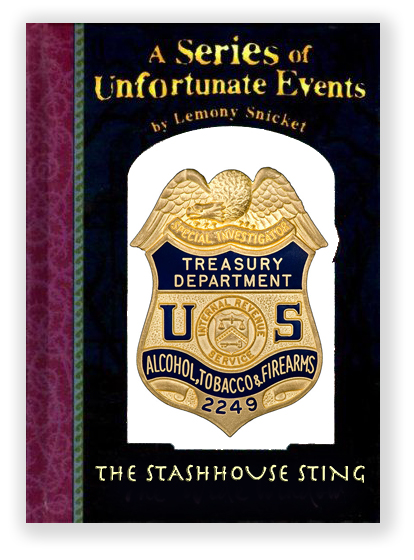We post news and comment on federal criminal justice issues, focused primarily on trial and post-conviction matters, legislative initiatives, and sentencing issues.
7TH CIRCUIT UPHOLDS ANOTHER STASH HOUSE STING, BUT WITH SCATHING CONDEMNATION OF GOVERNMENT
You know the story by now. After prison, Tracy Conley was getting his life together. He had a job, a car, and a girlfriend. He was regaining his footing one step at a time.
 At least he was, until a series of unfortunate events. Tracy got to work one day to find the machine he operated was down. His employer sent him home. He started to drive back to his girlfriend’s house, but in a second stroke of bad luck, was running out of gas. He stopped at a gas station, and saw two friends, from whom he tried to borrow a few bucks for some fuel.
At least he was, until a series of unfortunate events. Tracy got to work one day to find the machine he operated was down. His employer sent him home. He started to drive back to his girlfriend’s house, but in a second stroke of bad luck, was running out of gas. He stopped at a gas station, and saw two friends, from whom he tried to borrow a few bucks for some fuel.
The friends convinced him to come to a meeting instead, where a guy named Myreon pitched them all on robbing a drug stash house stuffed with cocaine. Of course, there was no stash house and no 50 kilos of powder. Instead, the whole scheme was orchestrated by the ATF.
Tracy and the others were thus ensnared in what the 7th Circuit called “a now familiar government set up in which a government actor, pretending to be a criminal, presents the defendant with an opportunity to be part of a robbery of an illegal drug stash house. The stash house is fictional, of course, and so the government decides which and what quantity of drugs it will have (in this case, fifty kilograms of cocaine) and how high or low the barriers to the crime will be (in this case it was allegedly protected only by two armed and one unarmed guards). Tracy took the bait and ended up with a sentence of 180 months’ imprisonment on drug distribution and weapons charges.”
The Circuit upheld Tracy’s conviction and sentence (which was way below his Guidelines range), but had to pinch its collective nose shut to do so. Reviewing the district court’s unhappiness with the case and widespread judicial criticism of stash house “stings,” the 7th said:
The district court’s discomfort with this case echoes a substantial body of criticism of similar stash house cases both from this circuit and others. Beginning many years ago, we criticized these cases as “tawdry,” noting in particular how these operations are “directed at unsophisticated, and perhaps desperate defendants” like Tracy who easily take the all-too-tempting bait put out for them by the government.
 In this case, Tracy may have been starting down a straighter path, after a life filled with many poor choices. He was gainfully employed, had obtained his GED, enrolled in some college courses, and had skills in electronics and marketing. But he was also an ‘unsophisticated and desperate’ target, so down on his luck that he did not have even enough money to get home from work on the day he was approached by his co-conspirators… Like the district court, we ‘question the wisdom and purpose of expending the level of law enforcement resources and judicial time and effort in this prosecution’. But the resources have been expended and the district court conducted an exceptionally thorough post-trial review and ‘after much consideration, time, reflection and review of the parties’ arguments and the trial record’ properly denied the motion for acquittal or new trial on all charges.
In this case, Tracy may have been starting down a straighter path, after a life filled with many poor choices. He was gainfully employed, had obtained his GED, enrolled in some college courses, and had skills in electronics and marketing. But he was also an ‘unsophisticated and desperate’ target, so down on his luck that he did not have even enough money to get home from work on the day he was approached by his co-conspirators… Like the district court, we ‘question the wisdom and purpose of expending the level of law enforcement resources and judicial time and effort in this prosecution’. But the resources have been expended and the district court conducted an exceptionally thorough post-trial review and ‘after much consideration, time, reflection and review of the parties’ arguments and the trial record’ properly denied the motion for acquittal or new trial on all charges.
United States v. Conley, Case No.15-3442 (7th Cir. 2017)
– Thomas L. Root

